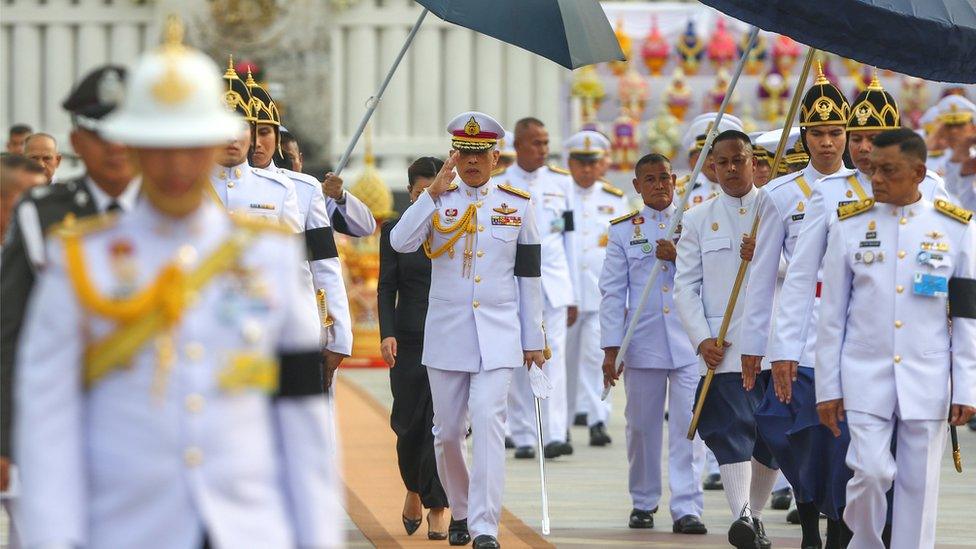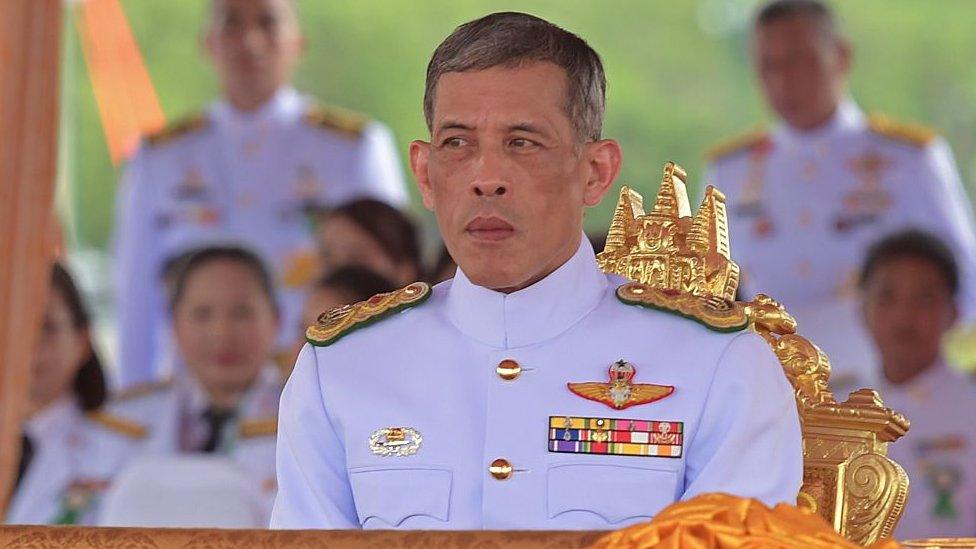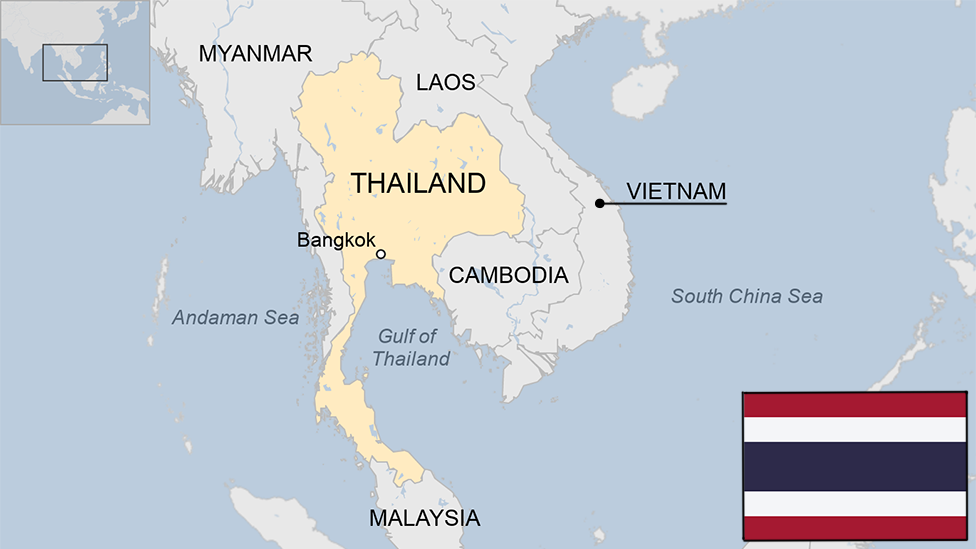Thailand king signs constitution paving way for polls
- Published

The king of Thailand has signed a new constitution that paves the way for a return to democracy but still gives the army an influential role in politics.
King Maha Vajiralongkorn signed the document at a ceremony in Bangkok.
It constrains future elected governments with an appointed senate, and commits governments to follow the military's 20-year development plan.
The last constitution was abolished after the military seized power nearly three years ago.
Critics claim the new document only allows for a partial, guided democracy.
It was approved by a referendum last August. Elections could now be held next year.
Thailand has had so many constitutions in its modern history - this is the 20th since 1932 - that many of them were introduced with little fanfare, reports the BBC's Jonathan Head in Bangkok.
But King Vajiralongkorn, who succeeded his father last year, signalled royal approval for the new charter by requesting an elaborate ceremony for its signing.
The king had requested changes to the charter earlier this year that restore some significant areas of royal influence.
The edits remove a power that would have been granted to the constitutional court to call a meeting in the event of a political crisis.
A requirement that the king appoint a regent when he leaves the country was also removed. The king often spends time in Germany, where a son attends school.
The generals say they need to impose some limits on democratic practice in order to prevent the need for military coups in the future.
Thailand's military has a history of intervening in politics and has seized power 12 times since the end of the absolute monarchy - and the introduction of the first constitution - in 1932.
It has promised not to intervene after the next elections, which have been delayed many times.
- Published3 May 2019

- Published16 August 2024

- Published7 March 2019